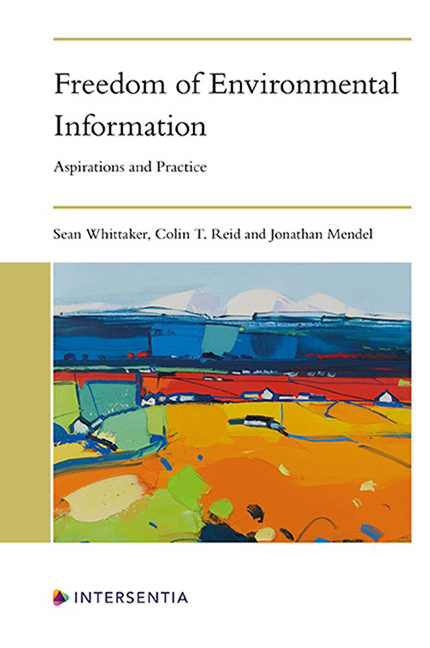Chapter 3 - Professional Users
Published online by Cambridge University Press: 15 November 2023
Summary
Although the environment may be intended to be the ultimate beneficiary, within the Aarhus Convention and the Environmental Information (Scotland) Regulations 2004 (EI(S)R) that give it effect in Scotland, users of the right are the actors who can claim direct benefits. It is therefore crucial that analysis of the right considers its users. It is these users who engage with the Convention’s moral duty to “protect and improve the environment for the benefit of present and future generations” and who exercise the right to seek access to environmental information through the proactive disclosure efforts of public authorities and the procedures set out in the EI(S)R. As a result, it is important to build both an appreciation of how the law perceives and constructs a vision of the users of the right to environmental information and an empirical understanding of who the users are and what they are doing.
INTRODUCTION
The starting point for understanding how the Aarhus Convention and the EI(S)R view users of the right is through the broad nature of the moral duty imposed on users to protect and improve the environment by participating in environmental decision-making processes. This duty is significant because it shapes expectations regarding how and why users engage with the right. Specifically, there is an assumption that users will be directly using the environmental information they access to “observe this duty” and fulfil their assumed altruistic, environmentally driven motivations for engaging with the right – a perspective reinforced by the legal instruments that preceded the Aarhus Convention. Further, users are expected to hold the necessary expertise effectively to understand and make use of the information they access for these purposes.
Yet while the Aarhus Convention holds these assumptions regarding those using the right, they are not fully reflected in the Convention’s provisions themselves. Under the Aarhus Convention, it is “the public” who can utilise its procedural rights, with “the public” being defined as:
One or more natural or legal persons, and, in accordance with national legislation or practice, their associations, organizations or groups.
- Type
- Chapter
- Information
- Freedom of Environmental InformationAspirations and Practice, pp. 57 - 92Publisher: IntersentiaPrint publication year: 2023



